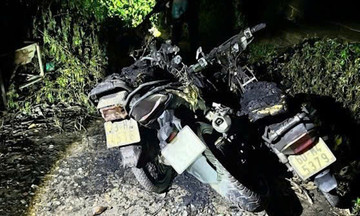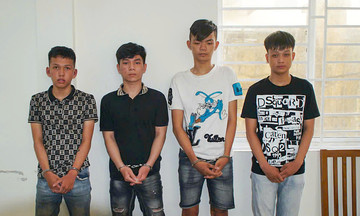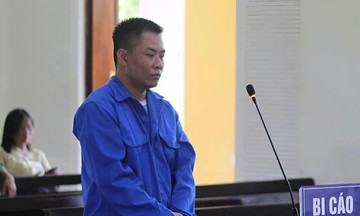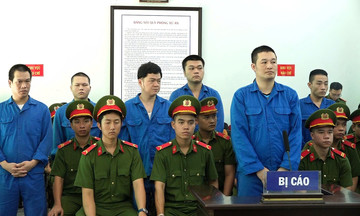This is a key provision of Decree 189/2025, detailing the administrative penalty authority of 14 groups of officials.
This authority was previously defined in Articles 38-51 of the former Law on Administrative Violations. With the amended Law on Administrative Violations of 2025 taking effect on 1/7/2025, these 14 articles have been repealed and replaced by Decree 189.
The authority of the People's Public Security (PPS) is outlined in Article 8 of the Decree, specifying each position from officers to commune police chiefs, provincial police directors, and department heads, generally granting increased authority.
Specifically, from 1/7, PPS officers on duty can: a) issue warnings; b) impose fines up to 10% of the maximum fine for the corresponding violation; c) confiscate exhibits and means of violation with a value not exceeding twice the fine in point b.
Previously, PPS officers could only fine up to 1% of the maximum fine for the corresponding violation, not exceeding 500,000 VND, and had no right to confiscate exhibits or means of violation.
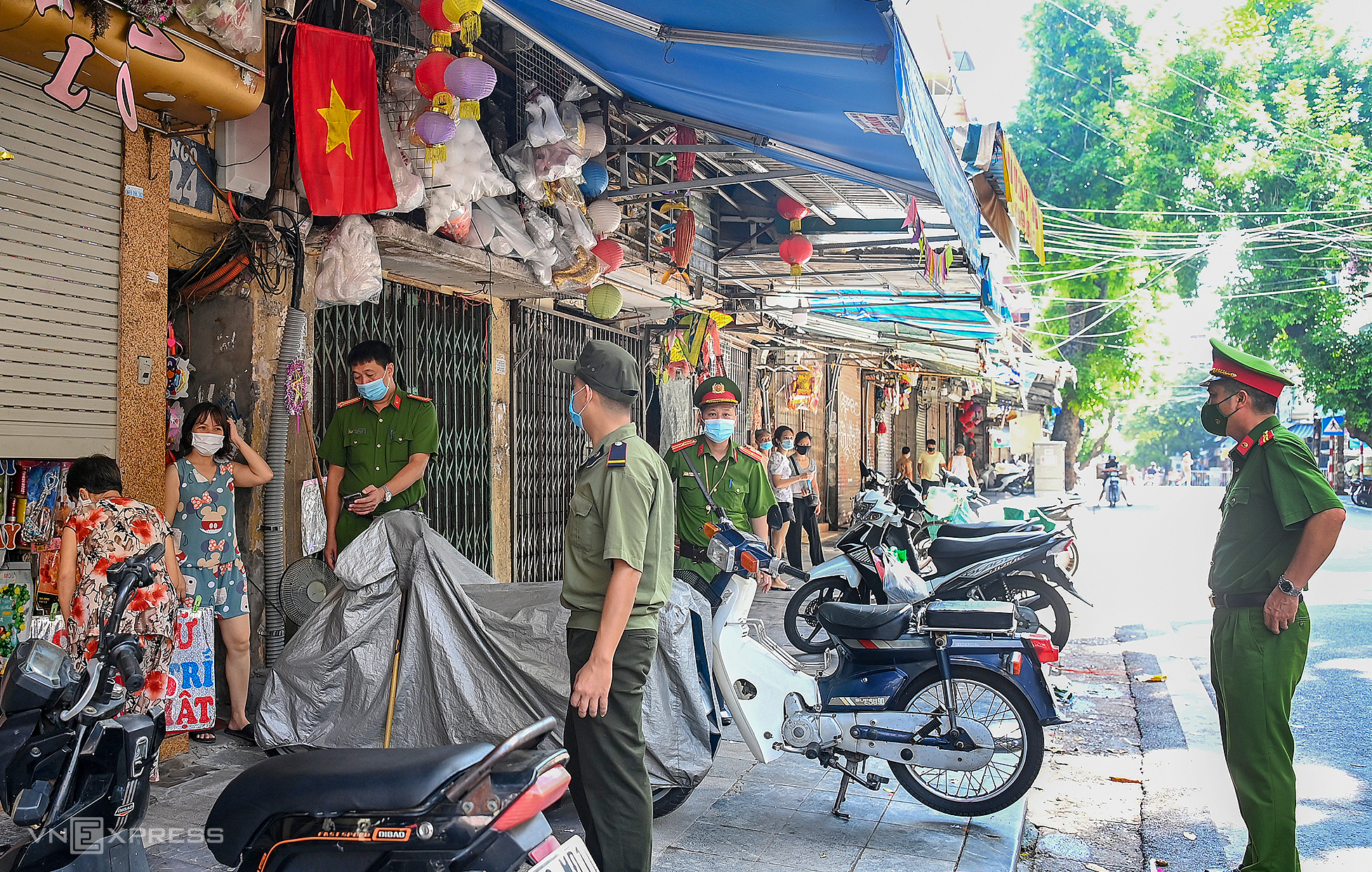 |
Ward police in Hanoi advise shops during the Covid-19 lockdown. Photo: Giang Huy |
Decree 189 also empowers mobile police unit commanders at the company level to impose fines up to 20% of the maximum (previously 3%, not exceeding 1.5 million VND); station chiefs and mobile police unit commanders at the battalion level can fine up to 30% of the maximum (previously 5%, not exceeding 2.5 million VND).
These officials can also suspend licenses, professional certificates, or operations of individuals and organizations.
Commune police chiefs, in addition to issuing warnings, revoking licenses and certificates, confiscating exhibits and means of violation, and mandating remediation, can now fine up to 50% of the maximum fine.
This makes the fining authority of commune police chiefs equal to that of former provincial police directors.
| Administrative penalty authority of commune police chiefs | Administrative penalty authority of provincial police directors |
| Clause 4, Article 8, Decree 189/2025 (effective from 1/7/2025) | Clause 5, Article 39, Law on Administrative Violations (repealed from 1/7/2025) |
| Commune police chiefs have the authority to: a) Issue warnings; b) Impose fines up to 50% of the maximum fine for the corresponding field as stipulated in Article 24 of the Law on Administrative Violations; c) Revoke licenses, professional certificates, or suspend operations; d) Confiscate exhibits and means of violation; | Provincial police directors have the authority to: a) Issue warnings; b) Impose fines up to 50% of the maximum fine for the corresponding field as stipulated in Article 24 of this Law, but not exceeding 100,000,000 VND; c) Revoke licenses, professional certificates, or suspend operations; d) Confiscate exhibits and means of violation; dd) Decide on deportation penalties; e) Apply remedial measures as stipulated in points a, c, dd, i, and k of Clause 1, Article 28 of this Law. |
Provincial police directors can now impose fines up to the maximum for the corresponding violation – an authority previously held only by department heads within the Ministry of Public Security.
Regarding deportation decisions, previously the authority of provincial police directors and the director of the Immigration Department, this power now extends to heads of provincial Immigration Management Departments.
See details of the latest administrative penalty authority of the police.
Similarly, the remaining 13 groups of officials with administrative penalty authority have also seen increased powers under the new regulations.
Commune chairmen can now fine up to 50% of the maximum for the corresponding violation, five times higher than the previous limit (10%, not exceeding 5 million VND). They can also suspend licenses, certificates, or operations – powers previously held only by district People's Committee chairmen.
This change stems from the implementation of the two-tiered local government model, eliminating the district level from 1/7.
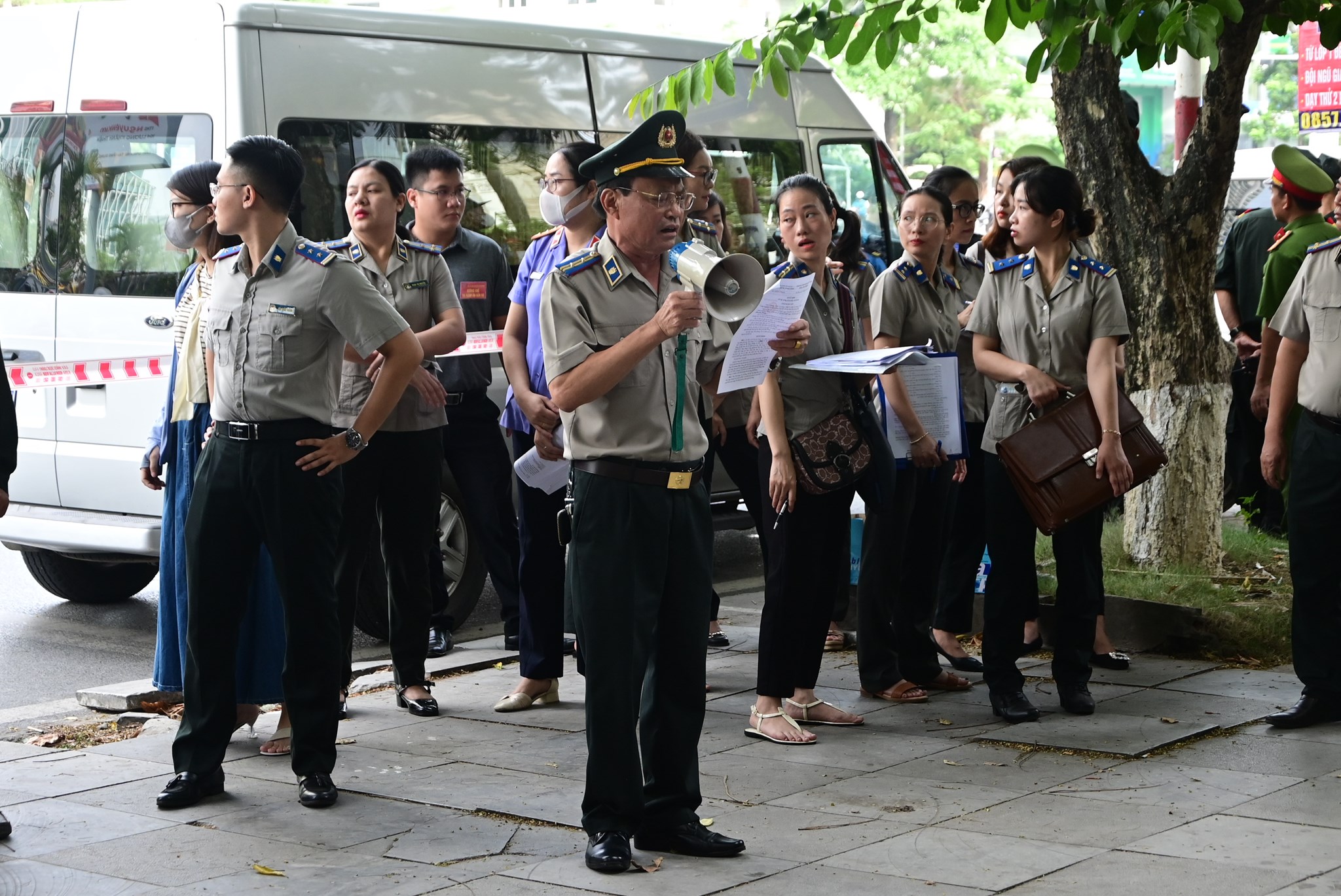 |
Civil judgment enforcement officers in Hai Phong City during a civil judgment enforcement session in 7/2023. Photo: Hai Phong Police |
The decree also narrows the scope of those subject to administrative penalties. For instance, within civil judgment enforcement agencies, bailiffs no longer have the authority to issue administrative penalties. Previously, bailiffs on duty could issue warnings and fines up to 500,000 VND.
This authority is now divided between two levels: heads of civil judgment enforcement agencies, who can fine up to 50% of the maximum (previously 20 million VND), and directors of Judgment Enforcement Management, who can fine up to the maximum. See details.
According to Article 24 of the current Law on Administrative Violations, the maximum fine for individuals is one billion VND, and for organizations, two billion VND.
See the latest regulations on maximum fines across various sectors.
Article 5 of the Law on Administrative Violations stipulates that members of the People's Army and PPS who commit administrative violations are treated like any other citizen. If penalties involving licenses, certificates, or operational suspensions related to national defense or security are necessary, the penalizing authority will request action from the competent military or police authority.
Individuals aged 14 to under 16 are penalized for intentional administrative violations; those 16 and older are penalized for all administrative violations.
Organizations are penalized for all administrative violations they commit.
Foreign individuals and organizations committing violations within Vietnam's territory, contiguous zone, exclusive economic zone, and continental shelf, or on Vietnamese aircraft or ships, are subject to Vietnamese law, unless international treaties to which Vietnam is a party stipulate otherwise.
Administrative measures (commune-level education, reformatory placement, compulsory education centers, and compulsory detoxification centers) do not apply to foreigners.
Hai Thu







